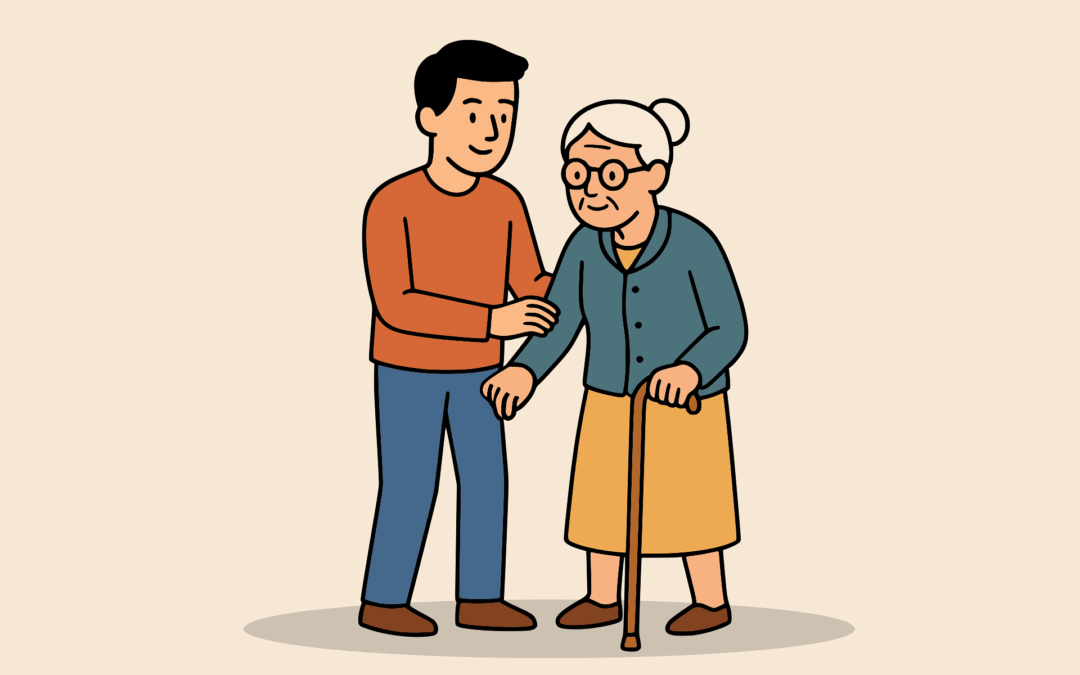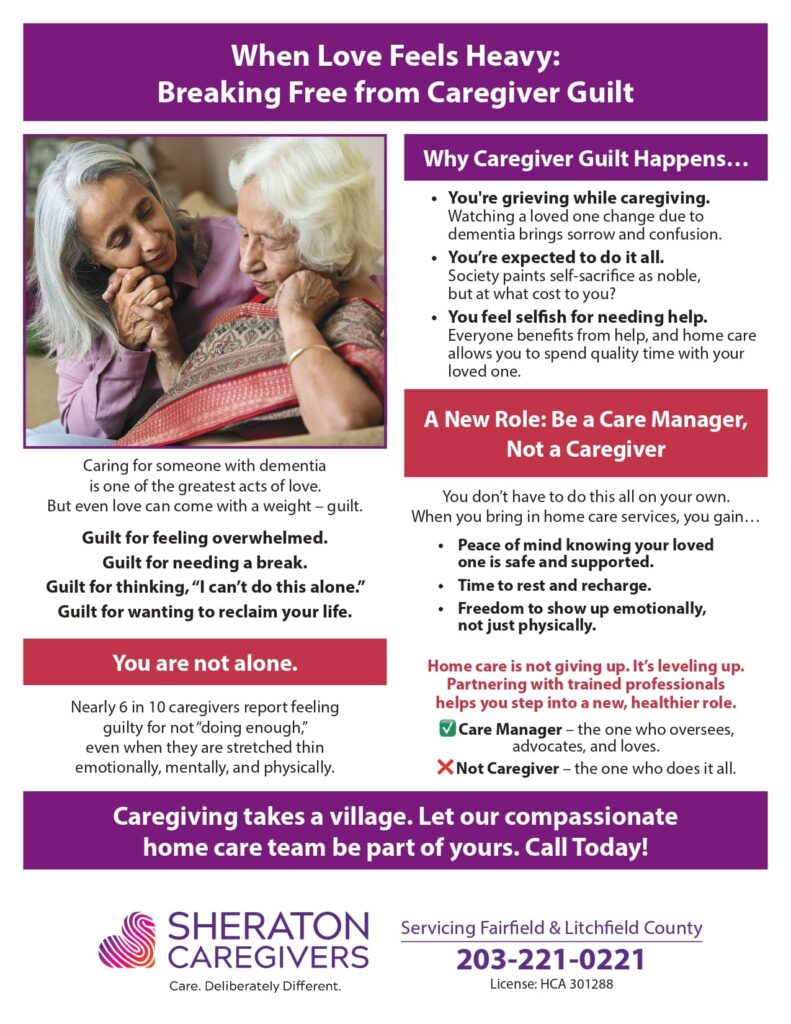TL;DR
This article examines caregiver guilt—what it is, why it arises, its emotional toll, and practical strategies like reframing blame, setting boundaries, and seeking help to manage it. Sheraton Care empowers families to care without guilt so they can thrive, not just survive.
Introduction
Caregiver guilt can sneak in when you’re giving your all—but it doesn’t have to define your caregiving journey.
🧠 What Is Caregiver Guilt—and Why It Matters
Caregiver guilt is the painful feeling that you’re not doing enough, letting someone down, or sacrificing too much—often fueled by emotional and cultural expectations.
Nearly 50% of caregivers report guilt triggered by self-expectation, family, or institutional pressures. It can undermine mental and physical health, fueling anxiety, resentment, burnout, and isolation.
🔍 Caregiver Guilt by the Numbers
- Family caregivers log an average of 24 hours per week—70 hours during crises—which heightens emotional exhaustion.
- Nearly half report loneliness—twice the U.S. rate—worsening guilt, and self-blame.
- Two types of guilt often surface:
- Neurotic guilt—feeling you’re letting your loved one down
- Existential guilt—regret over lost personal life opportunities
🚩 Signs You May Be Experiencing Caregiver Guilt
Look out for these red flags:
- Frequent overthinking, obsessing over mistakes or “what-ifs”
- Resentment toward caregiving or the person being cared for
- Anxiety or helplessness when away or taking a break
- Self-criticism and harsh judgment over ordinary caregiving decisions
⚙️ Why Caregiver Guilt Happens
Caregiver guilt is complex and common:
- Perfectionism & expectations: Wanting to be the “perfect” caregiver sets an impossible standard.
- Role shifts: Transitioning from child/spouse to caregiver can stir identity confusion
- External pressures: Family opinions or facility recommendations can intensify guilt.
- Inner conflict: Desire for personal freedom vs. duty—leading to existential guilt
📈 The Broader Context: Guilt in the U.S. Caregiving Landscape
Millions of American caregivers experience guilt:
- Roughly 106 million U.S. adults are unpaid caregivers—nearly half feeling lonely and internally conflicted
- Caregiving frequently results in mental health challenges—anxiety, depression, and chronic stress are widespread.
- Peer and institutional support—including community networks highlighted by NPR and TIME—are proving effective in alleviating guilt and stress.
Conclusion
Caregiver guilt is a natural response to caring deeply—but it doesn’t have to define your role. Recognizing guilt, reframing it, setting realistic boundaries, and leaning on help empower healthier, more sustainable caregiving.
Key takeaways:
- Guilt surfaces as self-blame, resentment, or anxiety—and it’s more normal than you think.
- It can harm mental, physical, and emotional well-being, especially when unchecked.
- You can manage guilt with acknowledgment, mindset shifts, shared responsibility, self-care, and professional support.
At Sheraton Care, we understand how guilt weighs on caregivers. We partner with families, offering compassionate respite, emotional support, and expert guidance—so you can care without sacrificing your own well-being. Let us walk with you toward balance and self-compassion.


